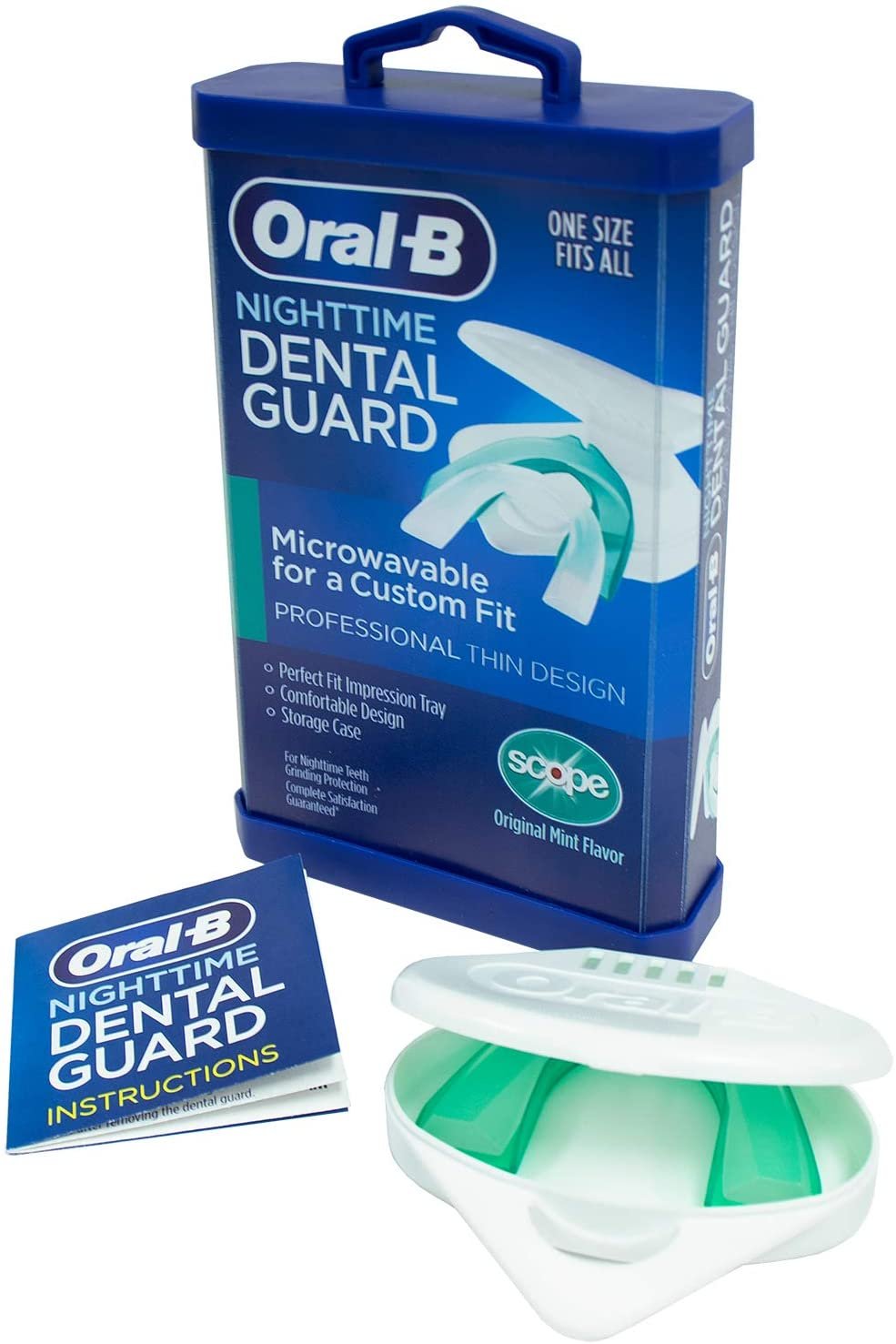Teeth grinding can happen either during the day or night.
But sleep bruxism is much harder to treat since many of us don't even know that we are doing it. The condition is only often found when we go and seek treatment for symptoms like headaches, facial or jaw pains, worn down teeth, or when a partner notices the grinding sound. Ignoring it won't go away, instead, it can actually lead to serious oral issues including loss of enamel, tooth sensitivity, and proclivity for cavities.
If you suspect that you're grinding your teeth away at night, the best thing to do is visit the dentist for a full evaluation. If your grinding seems to be associated with periods of high stress or poor sleep, then an over-the-counter mouthguard might help. These mouth guards usually cover the upper or lower teeth to prevent them from touching and can be used as a short-term solution. (Experts say two weeks to a month) but mouthguards are not usually recommended for long-term use.
What you should know about purchasing a mouthguard.
Bite and Boil or Microwave and Bite
A doctor can fit a custom mouth guard for you but the best fitting OTC alternative is to look for a "boil and bite" guard that molds your teeth. These tend to be the most popular variety since they are comfortable and can be easily found in a drugstore. All you have to do is put one into hot water, soften it and then bite into it. That way, it will help set it. Once it's set, you can trim the excess material and you have a semi-custom fitted guard. If you don't want to boil a whole pot of water, some guards allow you to microwave and then bite down on them. Both basically work the same.
Partial or full coverage
You will notice that some mouth guards cover all the teeth like you'd imagine hockey players are wearing. Others just cover the back teeth, some are partial to mouth guards. A mouth guard covers all teeth and is safer because there is less of a chance that your teeth will shift. One of the risks is wearing an Over-the-counter guard long-term. Your teeth don't know when to stop growing unless they touch something. One of the reasons that your teeth don't keep drifting out your jawbone is because they touch each other at night time. When you wear partial-coverage appliances, your teeth could potentially start shifting on you without you even realizing that.
Cause of grinding
Teeth grinding was once thought to be the result of jaw or teeth misalignment. That's not the case. People are wired to be grinders, and if you're grinding, there are certain things that can make it worse. Grinding is most often caused by clenched jaw muscles and some other factors such as stress and anxiety, caffeine and alcohol and medication can cause that.
Here are some of the best-recommended mouth guards to check out
It's one of the best sellers that have been highly recommended throughout the pandemic. It comes with a microwave-safe case to place it in while you make it, store it, and while you're using it. The molding only takes a few minutes and then you are all set. It also covers all your upper teeth and another feature is that it makes this guard desirable that it's flavored, so you can enjoy a nice minty mouthwash while wearing it.
When enamel is lost, teeth have lost their protective layer and the nerve becomes more exposed. You should find a mouth guard that will cover as much of your teeth as possible. This guard comes in a pack of four with two different sizes for a more personalized fit. You can drop it in hot water and mold it for your teeth. For even more customization, trim the sides for a better fit. This is the ideal guard for someone with sensitive teeth.
You might want to opt for a partial guard if you are someone who grinds their teeth during the day. This guard sits behind your front teeth, so no one will see it during your ZOOM meetings. This will help keep your back teeth apart and may prevent you from grinding your front teeth. This is a microwave-and-bite style so you can still get a custom fit around the teeth that it does cover.









